

Share
12th May 2019
08:30pm BST

It is July 2016 and at the ritzy Four Seasons in East Palo Alto, Jürgen Klopp is sketching his long-term aspirations as he undertakes his first pre-season with Liverpool. There is one theme he lingers on more than most: creating a significant legacy.
“When you sit in the main chair like I sit, you have a lot of power, but even more than that, you have all the responsibility,” he explains.
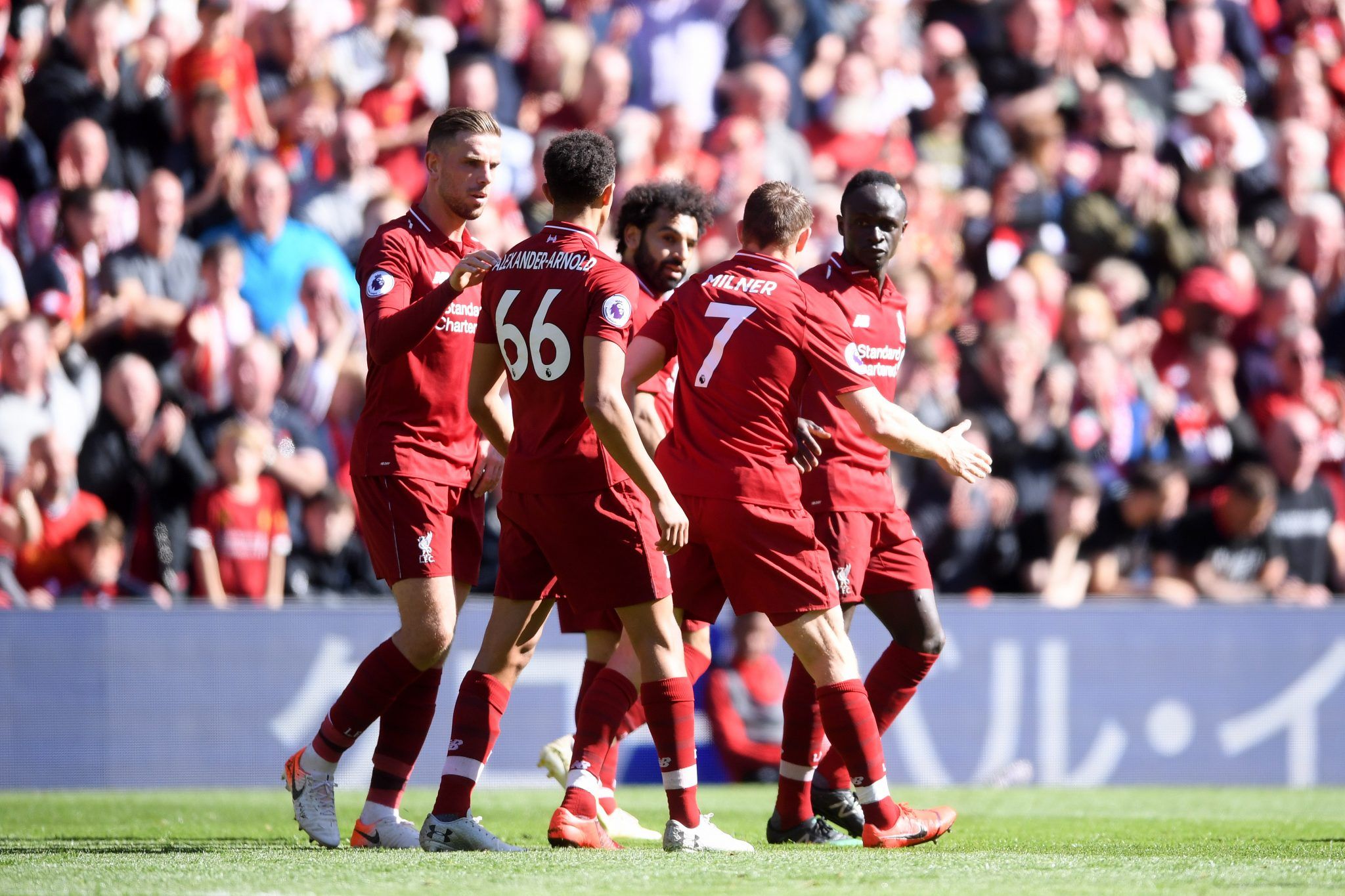
“And responsibility for me means it never ends. You need to create something where you can really be measured by - even after you’ve gone.
“In football, it’s always about pressure and the next game, next game, next game. Somebody has to say ‘stop!’
“The next game will always come, but you need someone who thinks ‘what happens after the games?’
“It’s needs to be the manager, the man in the chair.
“You are so busy planning for the next game, but you also have to take the minutes to think and talk about changing the structure to make it more effective.
“Build this, improve that. I’m interested in everything, in the whole club and when I leave at some point, I don’t want people to celebrate me still, I only want that they can still feel the benefit of me being manager here.”
It is 12 May 2019 - 1312 days since Klopp was appointed Liverpool manager - and the club have concluded the league campaign on 97 points.
That is a larger figure than 116 of the previous 119 domestic champions - seven more than Arsenal’s ‘Invincibles’, 21 better than the famed Manchester United class of ’99 - but it is not enough to reach the finish line first with Manchester City, on 98, retaining the title.
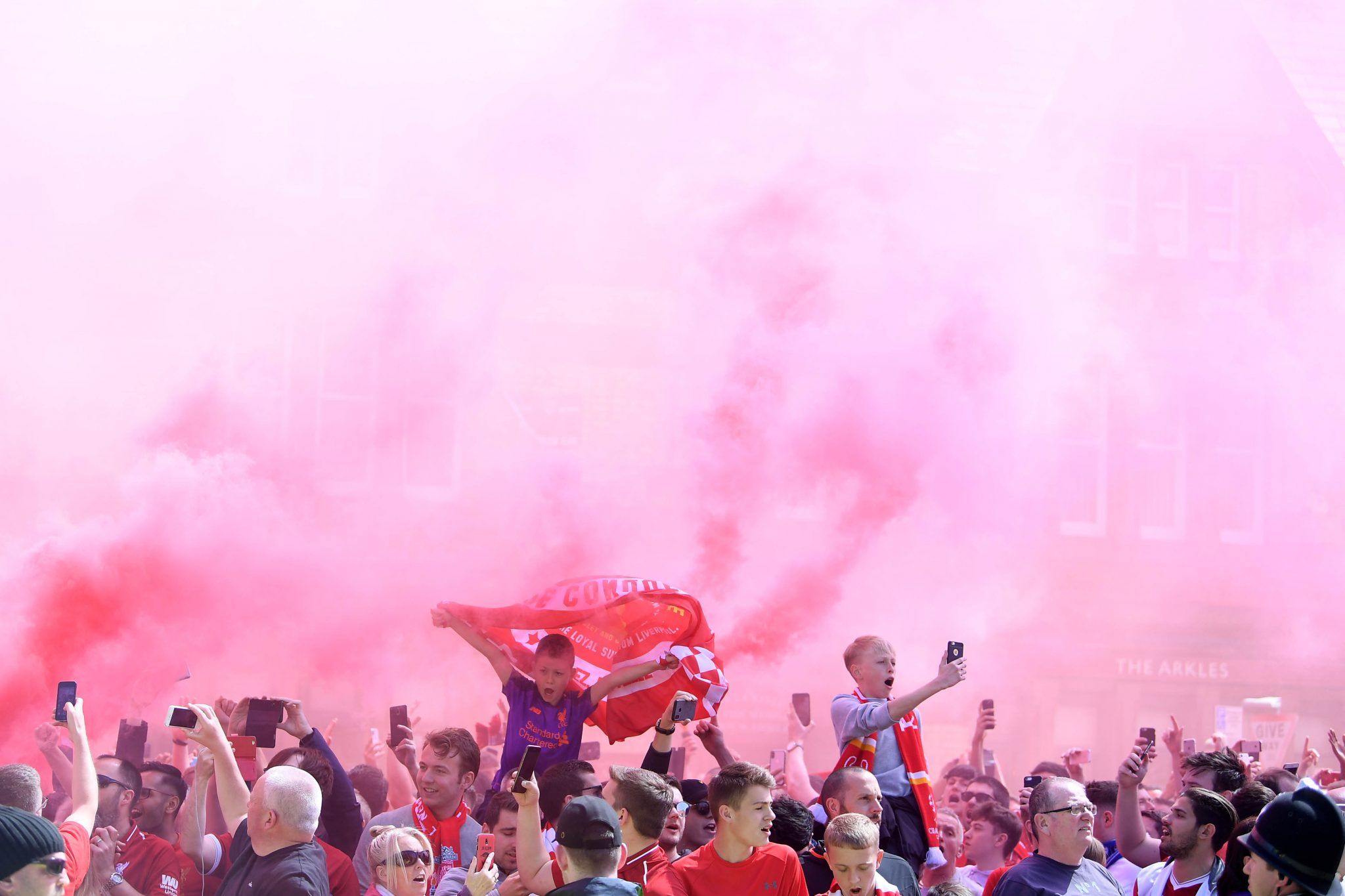
While it will be gutting for the Reds to have been so exceptional this season yet end such a close second-best in England, one inheritance of Klopp’s tenure thus far is the club’s power of rising from disappointment to return a bolder beast.
There is no greater evidence of this than their resounding response to losing the Champions League final against Real Madrid in Kiev a year ago.
It has not been by accident that Liverpool have stretched Pep Guardiola’s juggernaut all the way in the top-flight, while securing another crack at continental glory despite being 3-0 down to Barcelona in the first-leg of their semi-final.
It is the result of rigorous planning to ensure they extract every possible advantage across every area, from training to staff acquisitions, player recruitment to set-pieces and variations in playing style - or as Klopp simply summarised “changing the structure to make it more effective.”
The 51-year-old, along with his backroom team, sporting director Michael Edwards and Fenway Sports Group president Mike Gordon, started shaping strategies last January to ensure Liverpool’s evolution for 2018-19, a process that was accelerated during the summer.
One element of improving the club on the pitch was to fortify off it. Pep Lijnders rejoined the Reds as an assistant to Klopp in June after a six-month stint at the helm of NEC Nijmegen and in the same month, Philipp Jacobsen was appointed to the new position of medical rehabilitation and performance manager.
During pre-season, Thomas Gronnemark was drafted in to minimise errors from and maximise the use of throw-ins, while head physio Lee Nobes was pinched from City in November after spending 11 years with them.
Adding to what Klopp already labelled a “world-class operation” at Melwood under his belief that you “cannot have enough specialists around you,” Liverpool got to work on gaining the edges required to eradicate the 25-point gap City held over them at the end of 2017-18.
With Lijnders responsible for the sessions, there was a focus on eradicating mental fatigue and fear by ensuring superior physical preparation.
The Dutchman, fellow assistant Peter Krawietz and Klopp subscribed to the idea that Liverpool had to first compete with themselves: they needed to be sharper, steelier, stronger and more assured.
If the standard and intensity of training was elevated, the benefits would manifest on matchdays. But it wasn’t just about making the workouts gruelling to push the players beyond their limits, but also sourcing new advantages.
Klopp’s devotion to drastically improving Liverpool took in every tiny detail. He had researched Gronnemark’s background with throw-ins and with 40-50 occurring on average per game, he wanted the team to be more intelligent with them.
They have improved with long throws, fast throws which aid counter-attacks and possession-centered clever throws, upgrading their understanding of the right runs to make, how to create space during the set-play and what is the optimum positioning to take.
Klopp was also determined to turn corners and free-kicks into a major attacking weaponry for Liverpool, making them ‘the most alive’ from deadball situations.
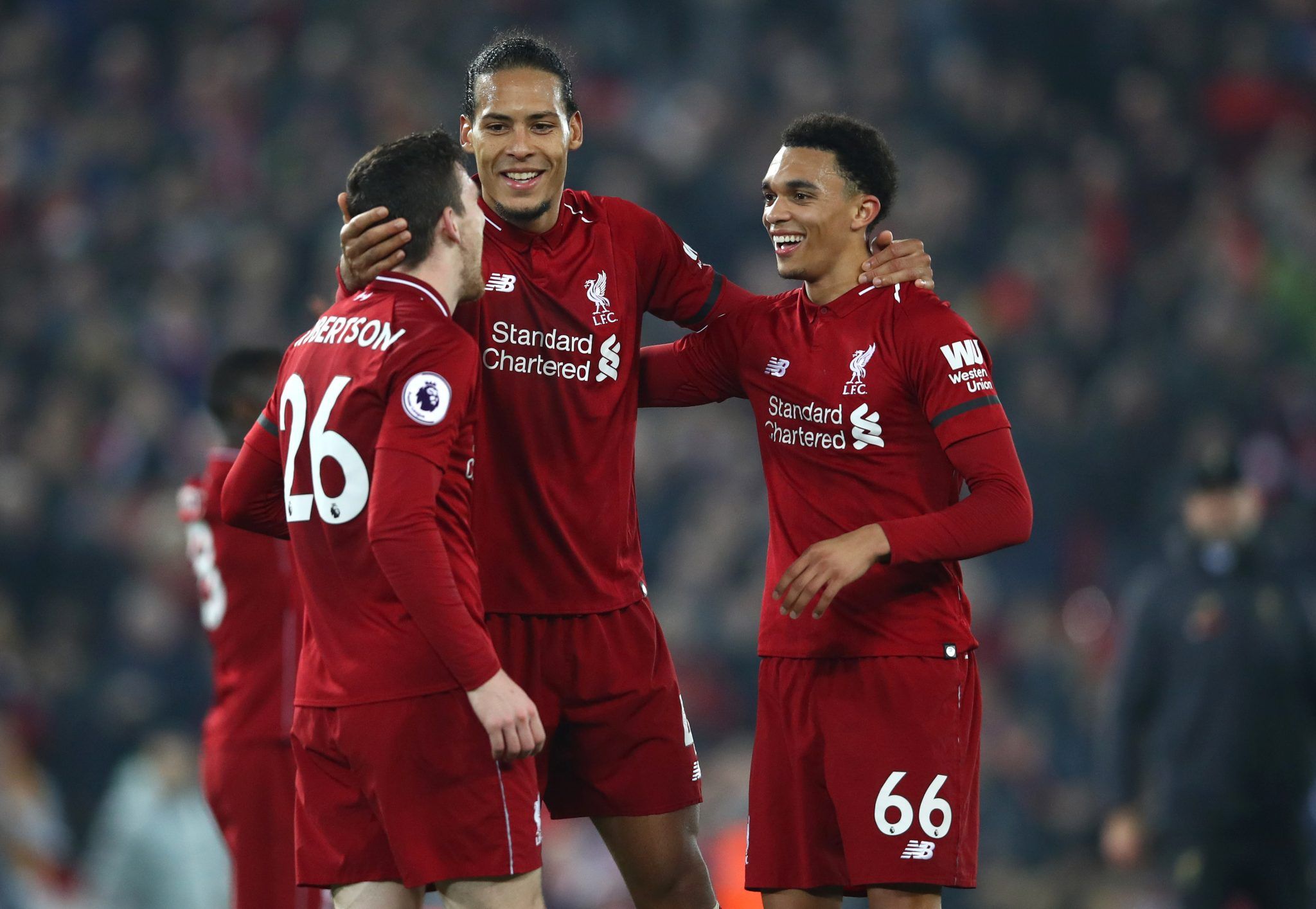
Extra time was dedicated to working on variations in delivery, movement and effectively ousting opposition markers with the Reds never repeating their routines.
Beyond being direct and decisive from the set-pieces, which is a nightmare for defenders, Klopp also knew that the confidence generated around them would spark the crowd giving rise to a more intense atmosphere.
Liverpool’s intelligence and effort on the training pitches has been evidenced in the numbers and was crystallised by the final strike in the momentous 4-0 comeback against Barcelona on Tuesday evening: the ballboy Oakley Cannonnier following instruction by supplying Trent Alexander-Arnold quickly, the fullback smartly catching Ernesto Valverde’s disorganised men cold from the corner, with Divock Origi alert to finish on ’79.
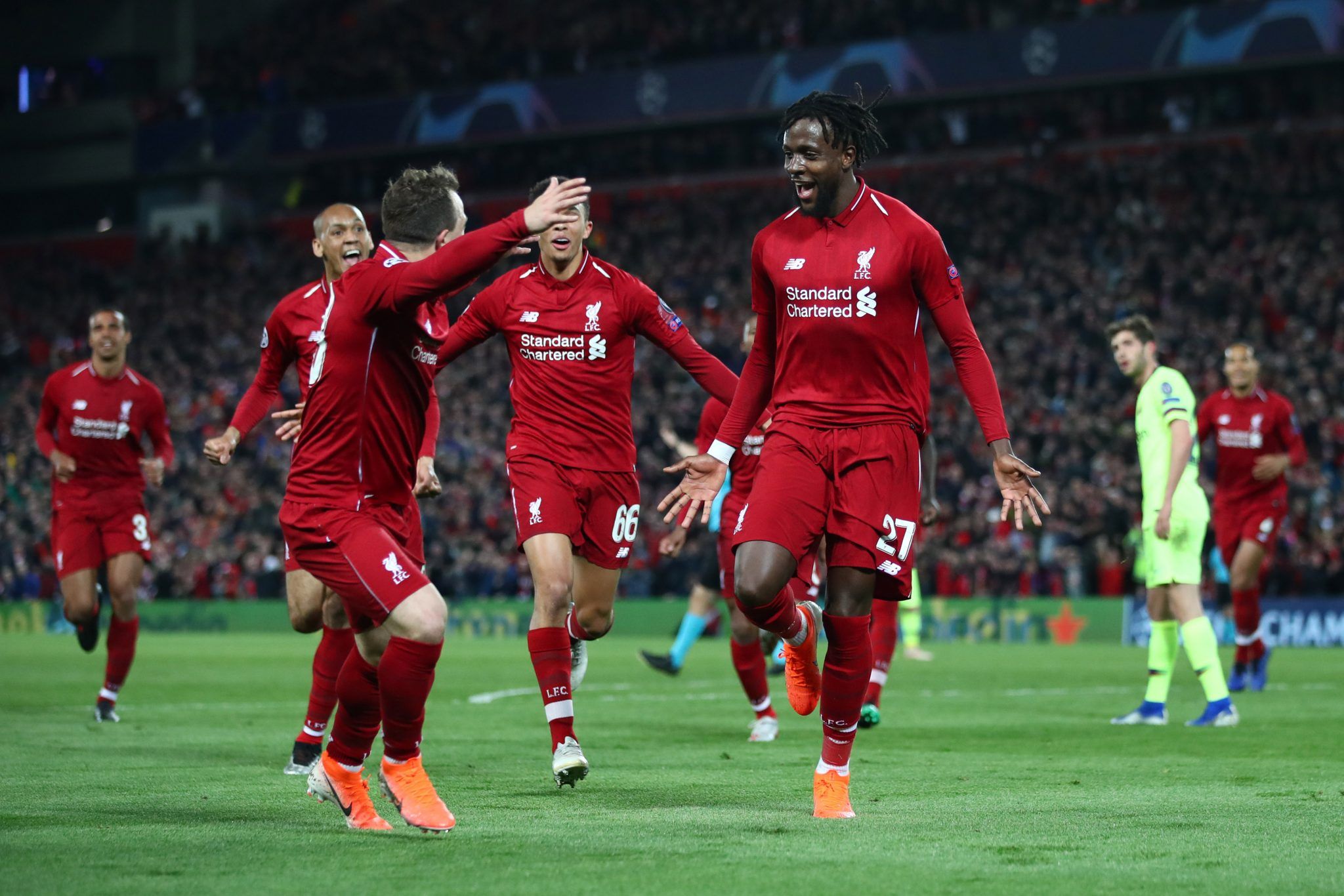
Their endurance has seen them score 30 goals in the last 15 minutes of games this season, 24 of those in the league.
As Andy Robertson explained: “It all started in pre-season when we put all those miles in to get us as fit as possible.
“We feel as if we're fitter and stronger than most teams and we can go right to the end. That fitness has been key and it's enabled our quality to shine through. We're still going strong in the 90th minute.”
Liverpool are the league’s set-piece kings netting more (21) from deadball situations - excluding penalties - than any other team in the campaign having only managed 11 last time around.
They’ve also been successful with the most headers (19) and goals from substitutes (12).
“Build this, improve that,” as Klopp noted about his methodology. “I’m interested in everything.”
Every tiny detail.
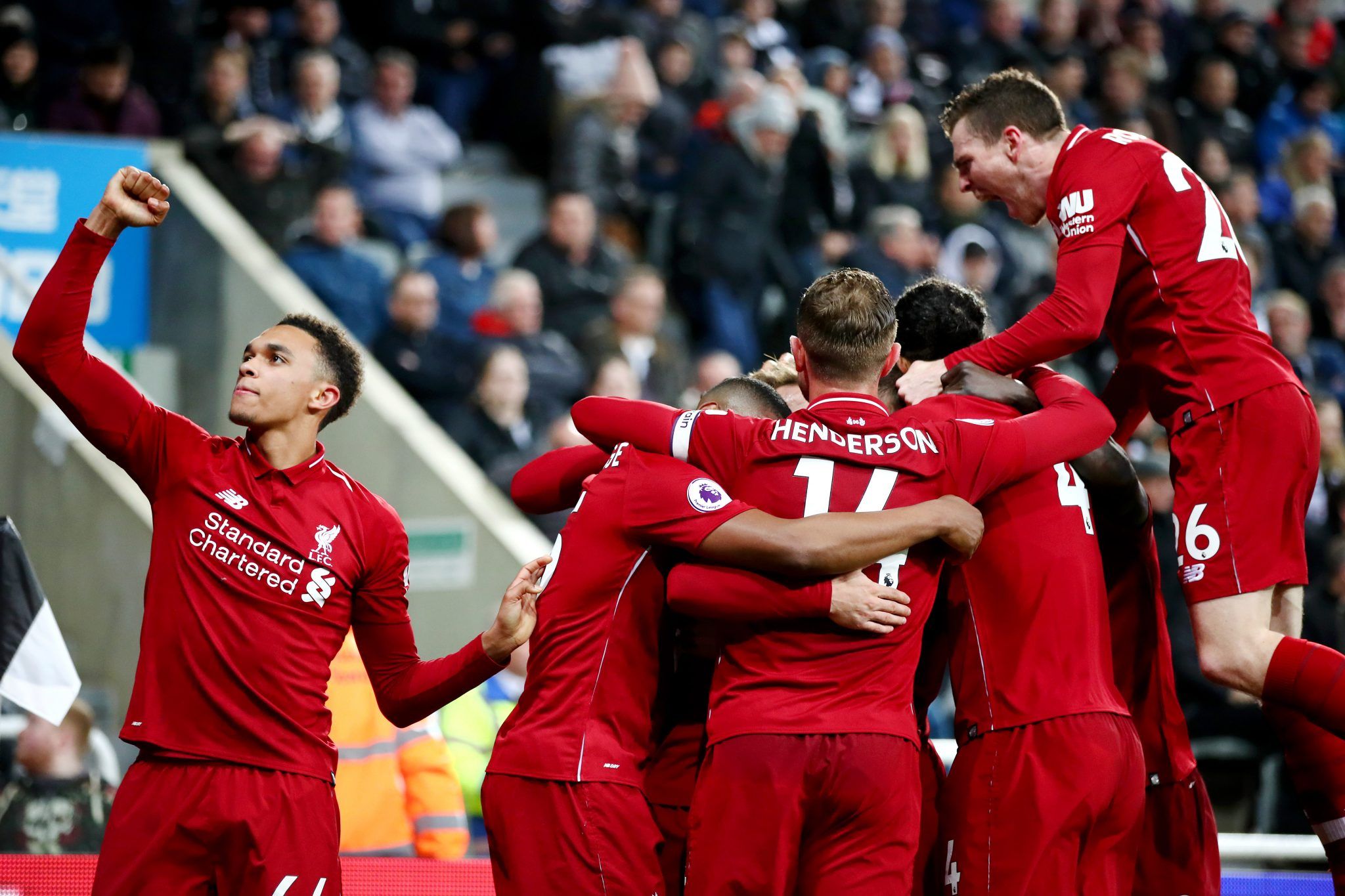
A line Lijnders has used often this season is a perfect frame for Liverpool’s shift in playing style. The Reds, while still fully capable of marmalising opponents with attacking blurs, have become more balanced with a protection-first focus.
Aware that most opponents opt to sit in and wait to punish them on the break, the coaching staff shortened the distance between the midfield three and drilled clever organisation in possession and out of it to aid counter-pressing plus domination of play in the opposition half.
The first route for Liverpool, with the additions of the elite Virgil van Dijk, Fabinho and Alisson, to enhance their defence was to be more purposeful with the ball. By changing the tempo of passing, they could render their adversaries passive and thus unthreatening.
From mid-January to the start of February, when Klopp’s side conceded three at home to Crystal Palace in a win before consecutive 1-1 draws with Leicester and West Ham, questions were asked about the rearguard, but it actually attacking failures that created problems for Liverpool.
They were not finding the free player quick enough, breaking the lines effectively or protecting possession enough, which caused issues when the ball was lost.
All in all, Liverpool’s collective defensive shape and pressure has been incredible this season. The average quality of shots they’ve faced has dropped by 25%, with Alisson brilliantly outperforming the expected goals against him.
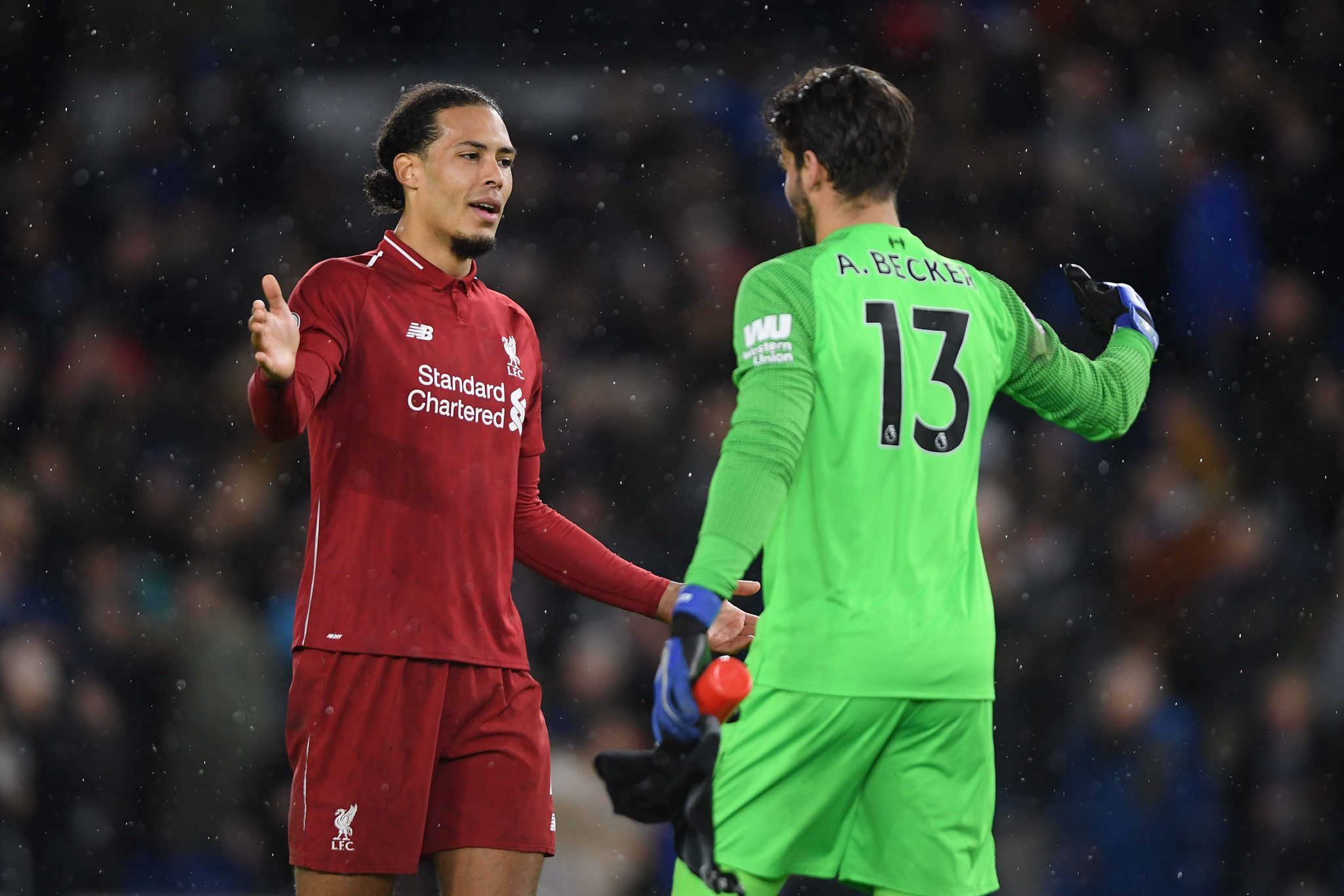
As Klopp has been keen to stress, while the Brazil goalkeeper and Van Dijk have been seismic in bettering the Reds at the back, every single player is both an attacker and defender.
To illustrate this point, Liverpool’s full-backs and centre-halves have been directly involved in 41 goal contributions in all competitions.
“There are 500 ways to win a football match,” the Reds boss said in April and his charges have shown throughout the campaign that they are capable of securing victory by different means: the blitz, the war of attrition, bouncebackability, the ugly smash and grab…
Liverpool’s flexibility has not just been down to decisions from the coaching staff. Klopp’s “mentality monsters” have been conscious about greater game management and surety, elements they were serious about solidifying.
The senior players’ committee had called a meeting after the 3-3 draw away to Sevilla in November to address the squad’s shortcomings: Why couldn’t they feel secure in games despite having a decent cushion? How did they keep getting undone by allowing adrenaline to overtake their intelligence?
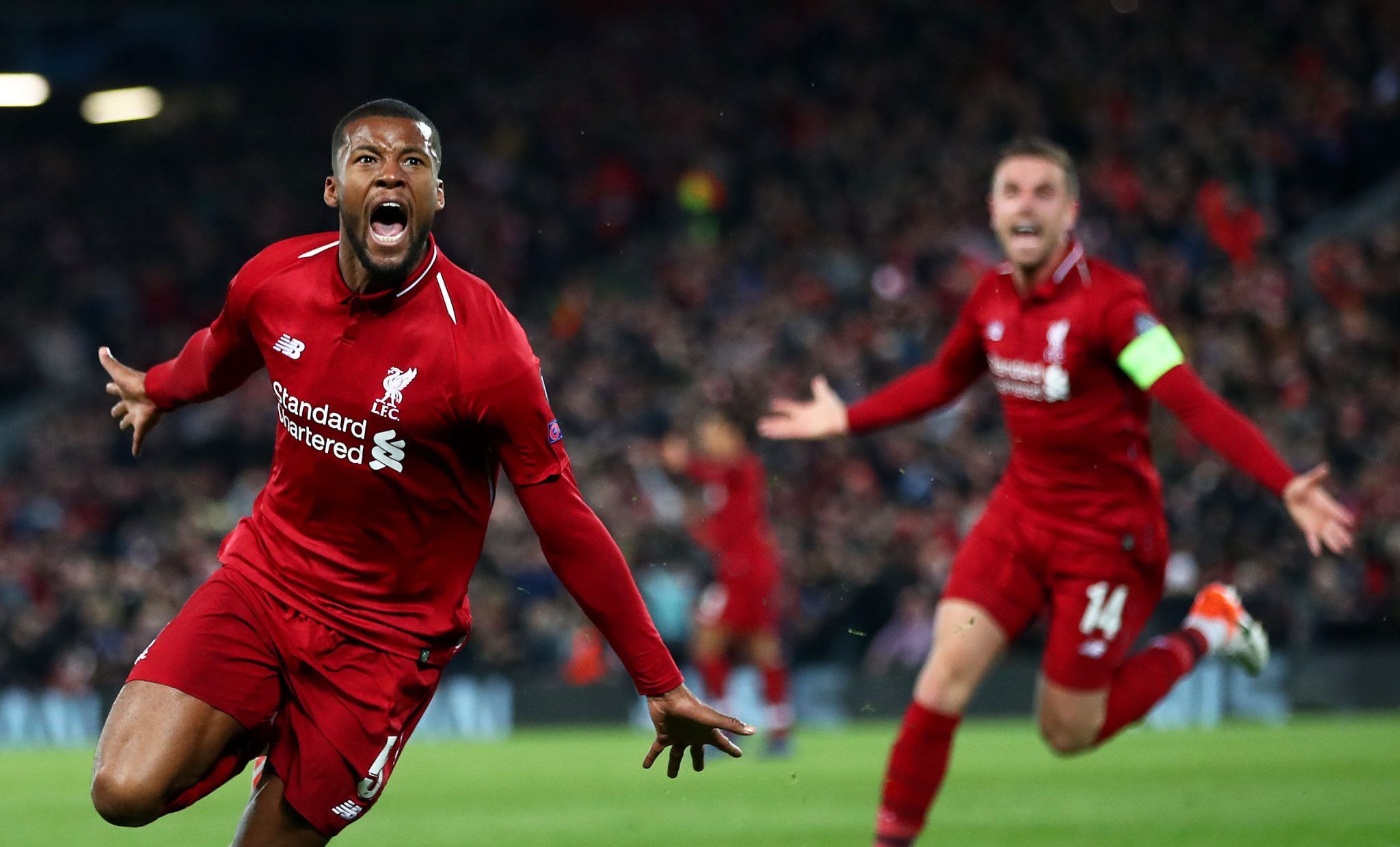
The dialogue has been ongoing since then, with the team not shy of self-reflection.
“The character and mentality of these boys, is the only reason why we are where we are,” Klopp reminded.
“The group of players we have here is so special. Since Tuesday, maybe Wednesday morning, if I had to find a very short description for the group I would say ‘it’s only pain’. That’s how they went through the season.
“There was always pain, it was always hard, it was always difficult but ‘it’s only pain, let’s carry on’.”
“So the boys did really an unbelievably consistent job and being consistent is the most difficult thing in life and football as well, because there are a lot of good footballers out there but to show your quality week in and week out, that’s the most important thing to be really successful.
There are multiple examples of Liverpool players hurdling over troubles to just get on with it this season - from Gini Wijnaldum playing in the 3-0 victory over Bournemouth in February despite suffering with diarrhoea to Jordan Henderson continuing against Barca despite taking a heavy kick to his knee - but there is a tale from pre-season that underscores their first-rate attitude.
When the team were travelling from Charlotte to New Jersey, the plane was grounded on the tarmac of Charlotte Douglas International Airport for eight hours due to adverse weather conditions.
Not exactly an ideal scenario, but there was no fuss, just a simple adaptation to the situation with the players retrieving balls from the aircraft’s hold to stretch their legs with a kickabout.
That evening, Liverpool’s coaching staff glowed about the lack of egos in the squad, but again, that was no coincidence.
The recruitment team possess a wealth of data on potential incomings, but moreover, they do extensive research on their application in training, how they deal with pressure situations, their treatment of employees at previous clubs and their appetite for advancement.
Edwards, along with Dave Fallows, the head of recruitment, chief scout Barry Hunter and research guru Ian Graham, have been superb at identifying the right talents for Klopp’s blueprint and the culture of excellence he has created at the club.
Moreover, Liverpool have tied down core squad members to new long-term contracts with Roberto Firmino, Mohamed Salah, Henderson, Sadio Mane, Joe Gomez, Andy Robertson and Trent Alexander-Arnold committing their futures in the last year.
The make-up of the squad - in terms of age, aptitude and mentality - gives the Merseysiders a mighty platform with which to go again.
There will be no standing still, though. Work has already long begun on identifying areas to strengthen next season, from quality of squad depth to unearthing greater marginal gains.
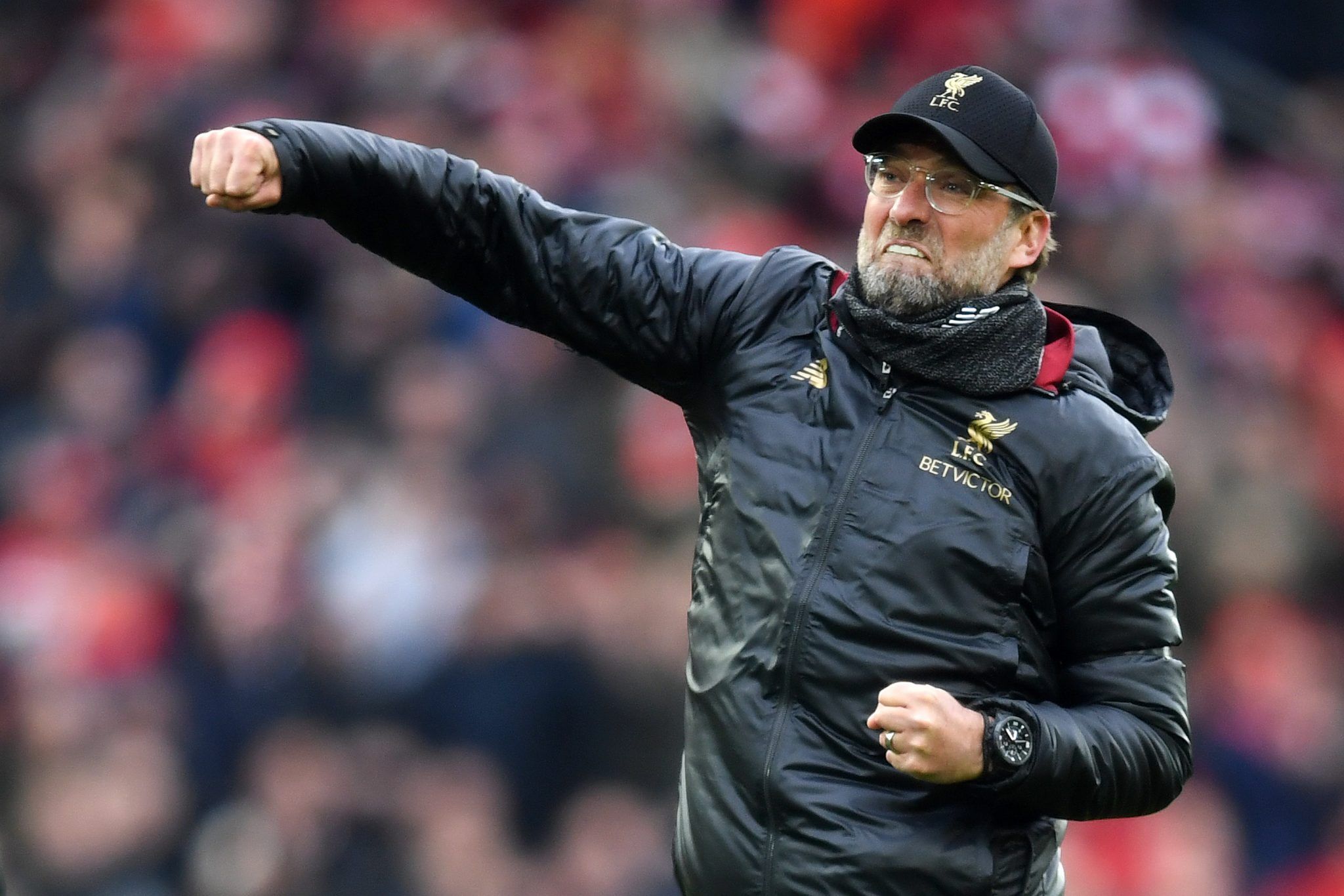
Those who believe Liverpool’s efforts in 2018-19 have been “freakish” or “fortunate” and expect them to combust in the new campaign couldn’t be further from the facts.
There has been purpose behind every decision and finishing second - only one defeat stopping them from reaching a century of points, being crowned the new ‘Invincibles’ and finally being crowned Premier League champions - will only harden their resolve to succeed domestically next season.
Until then, another Champions League final awaits along with the reminder that it is very daft to doubt this Liverpool.
It is why Anfield, bathe in glorious sunshine, hosted a scarf-swirling, fist-pumping party on Sunday afternoon.
Supporters, like the backroom staff and the squad, understand this is only the early phase of something special, not the closing one.
Explore more on these topics: